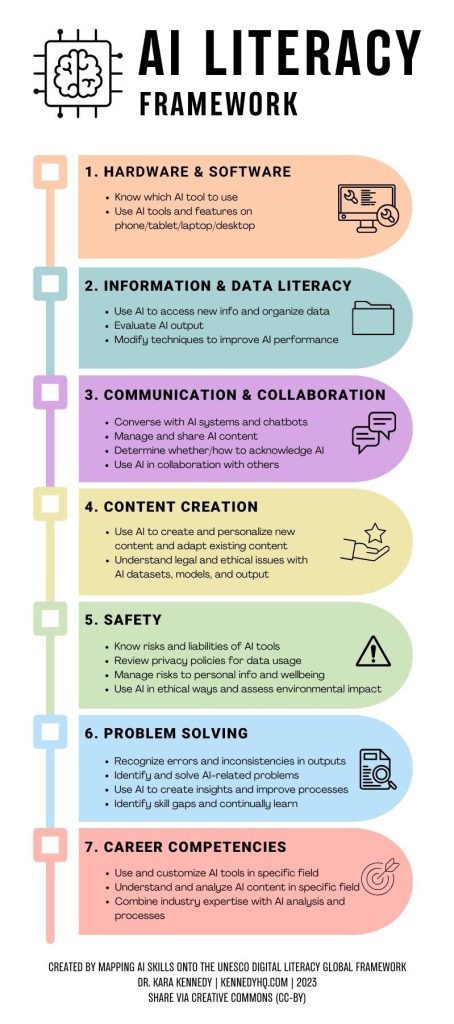
Check with your professor before using generative AI tools, such as ChatGPT etc., for any coursework. There might be assignments when AI use is encourage or required and assignments that strictly prohibit it.
Acknowlege AI usage in assignments. If you have used an AI tool in your coursework for rough draft or outline assistance, idea generation, or research help it is best to tell your professor that AI was used as part of the process.
Even if you’re transparent about using ChatGPT and have verified the accuracy of its content, you still can’t submit AI-generated text as your entire assignment. .
ChatGPT and other generative AI tools can be great starting points. You might use them to brainstorm research topics, organize your thoughts, or help shape an outline. But the final product needs to reflect your research, your analysis, and your original ideas.
AI can support the process, but the content of any paper or project must be produced by the student. Your professor wants to see your thinking and grade your work, not what is generated from ChatGPT or any AI tool.
What you should never do is type a prompt into ChatGPT, copy the response, and turn it in as your own work.Copying and pasting text from ChatGPT or another AI tool will almost always be considered plagiarism and can lead to severe academic consequences.
AI tools like ChatGPT can be useful for brainstorming or getting started, but they’re not always accurate. These tools can produce content that sounds convincing but is factually wrong or misleading. These occurances are known as hallucinations.
If you use AI to help with an assignment, you must double-check everything it writes. Look up facts, statistics, and claims using trusted sources like library databases, Google Scholar, or reputable websites.
**Tip from the NCC Librarians: Always Google ChatGPT Citations**
ChatGPT can generate citations that look legit, but sometimes, they’re completely made up. These “hallucinated” citations might include fake article titles, fake authors, and fake journals. They seem real at first glance, but the sources don’t actually exist.
To check if a citation is real, just copy and paste it into Google. If it’s legit, you’ll usually find it listed on a journal’s website, in Google Scholar, or cited in other articles. If nothing comes up, or you can’t find any trace of the article, that’s a red flag.
You can also search by typing the author’s name along with part of the article title.
Bottom line: Don’t trust AI-generated citations without verifying them.
AI tools like ChatGPT work a lot like any other website that use the information you've given. That means you need to be careful about what you share.
Never enter personal or sensitive information when using AI. For example, if you're asking about Social Security, don’t include your actual Social Security Number! Treat AI like a public space: what you share isn’t guaranteed to be private.
It is important to protect your privacy when using AI, just like you would anywhere else online.
Dr. Kara Kennedy's AI literacy framework, adaptin g UNESCO's framework, covers seven areas: using AI tools on devices (Hardware & Software); using AI to handle information and data, and evaluating AI output (Information & Data Literacy); communicating and collaborating with AI (Communication & Collaboration); creating content with AI, considering legal/ethical issues (Content Creation); understanding AI risks and using AI ethically (Safety); identifying AI errors and solving AI problems (Problem Solving); and applying AI in specific careers (Career Competencies).
g UNESCO's framework, covers seven areas: using AI tools on devices (Hardware & Software); using AI to handle information and data, and evaluating AI output (Information & Data Literacy); communicating and collaborating with AI (Communication & Collaboration); creating content with AI, considering legal/ethical issues (Content Creation); understanding AI risks and using AI ethically (Safety); identifying AI errors and solving AI problems (Problem Solving); and applying AI in specific careers (Career Competencies).
1. Hardware and Software
2. Information and Data Literacy
3. Communication and Collaboration
4. Content Creation
5. Safety
6. Problem Solving
7. Career Competencies
AI Literacy Framework by Dr. Kara Kennedy. CC-BY.